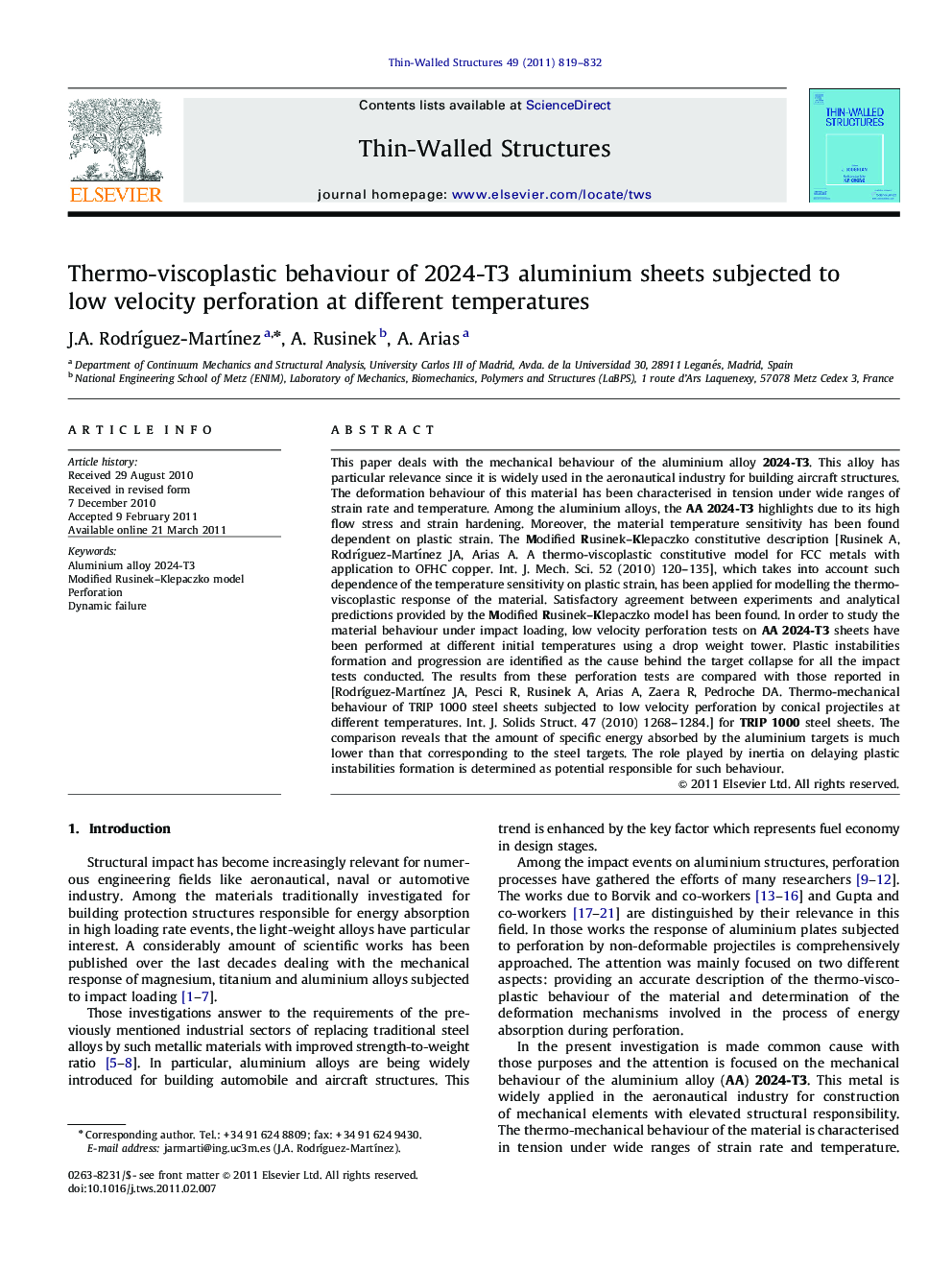| کد مقاله | کد نشریه | سال انتشار | مقاله انگلیسی | نسخه تمام متن |
|---|---|---|---|---|
| 309587 | 513614 | 2011 | 14 صفحه PDF | دانلود رایگان |

This paper deals with the mechanical behaviour of the aluminium alloy 2024-T3. This alloy has particular relevance since it is widely used in the aeronautical industry for building aircraft structures. The deformation behaviour of this material has been characterised in tension under wide ranges of strain rate and temperature. Among the aluminium alloys, the AA 2024-T3 highlights due to its high flow stress and strain hardening. Moreover, the material temperature sensitivity has been found dependent on plastic strain. The Modified Rusinek–Klepaczko constitutive description [Rusinek A, Rodríguez-Martínez JA, Arias A. A thermo-viscoplastic constitutive model for FCC metals with application to OFHC copper. Int. J. Mech. Sci. 52 (2010) 120–135], which takes into account such dependence of the temperature sensitivity on plastic strain, has been applied for modelling the thermo-viscoplastic response of the material. Satisfactory agreement between experiments and analytical predictions provided by the Modified Rusinek–Klepaczko model has been found. In order to study the material behaviour under impact loading, low velocity perforation tests on AA 2024-T3 sheets have been performed at different initial temperatures using a drop weight tower. Plastic instabilities formation and progression are identified as the cause behind the target collapse for all the impact tests conducted. The results from these perforation tests are compared with those reported in [Rodríguez-Martínez JA, Pesci R, Rusinek A, Arias A, Zaera R, Pedroche DA. Thermo-mechanical behaviour of TRIP 1000 steel sheets subjected to low velocity perforation by conical projectiles at different temperatures. Int. J. Solids Struct. 47 (2010) 1268–1284.] for TRIP 1000 steel sheets. The comparison reveals that the amount of specific energy absorbed by the aluminium targets is much lower than that corresponding to the steel targets. The role played by inertia on delaying plastic instabilities formation is determined as potential responsible for such behaviour.
Journal: Thin-Walled Structures - Volume 49, Issue 7, July 2011, Pages 819–832